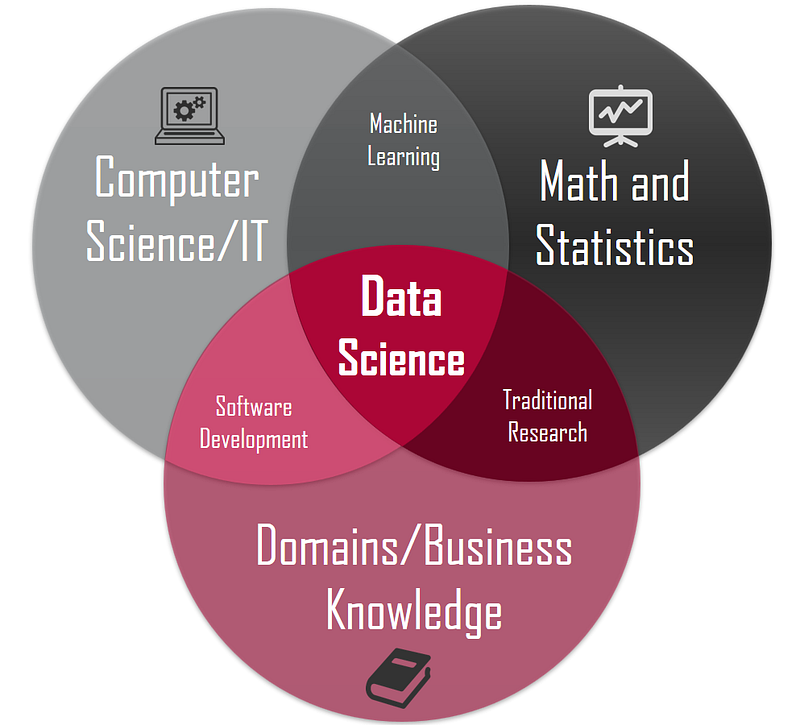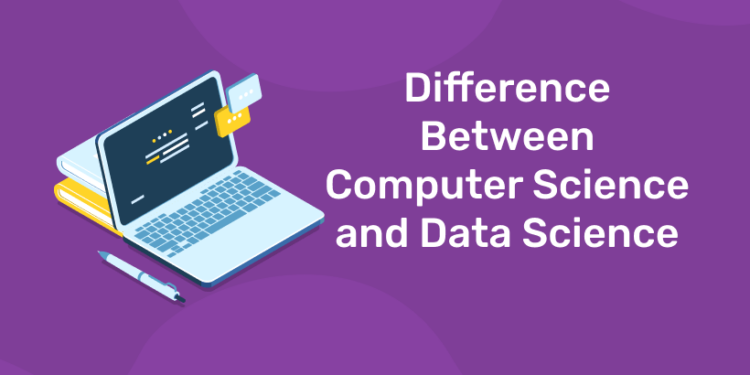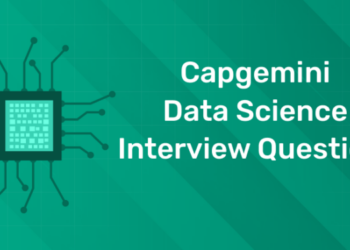Table of Contents
Data Science and Computer Science often go hand-in-hand, but what really makes them different? What do they have in common? After experiencing several different roles in Data Science at various companies, I have realized general themes of the Data Science process, along with how Computer Science is incorporated into that process as well. It is important to note the differences between these two positions, as well as when one requires the other, and vice versa. Usually, a Data Scientist will benefit from learning Computer Science first, and then specializing in Machine Learning algorithms. However, some Data Scientists start straight into statistics before learning how to code, focusing on the theory of Data Science and Machine Learning algorithms. That was my approach, with learning Computer Science and programming afterward. That being said, does a Data Scientist need to know Computer Science? The short answer is yes. While Computer Science can encompass Data Science, especially critical in artificial intelligence, I believe the main theme of Computer Science is software engineering.
Introduction
Are you from a computer science background and moving into data science? Are you planning to learn coding being from a non-programming background in data science? Then you need not worry because in this blog we will be talking about the importance of computer science in the data science world. Furthermore, we will also be looking at why is it necessary to be fluent with coding(basic at least) in the data science world.
Before enumerating the role of computer science in the data science world, let us clear our understanding of the above two terms. This will allow us to be on the same page before we reason out the importance of coding in data science.
Learn coding with Entri ! Ace your machine learning skills
What is Computer Science
Computer Science is the study of computers and computational systems. Unlike electrical and computer engineers, computer scientists deal mostly with software and software systems; this includes their theory, design, development, and application.
Principal areas of study within Computer Science include artificial intelligence, computer systems, and networks, security, database systems, human-computer interaction, vision and graphics, numerical analysis, programming languages, software engineering, bioinformatics and theory of computing.
What is Data Science
Data science is the umbrella under which all terminologies take the shelter. Data science is a like a complete subject which has different stages within itself. Suppose a retailer wants to forecast the sales of an X item present in its inventory in the coming month. This is known as a business problem and data science aims to provide optimized solutions for the same.
Data science enables us to solve this business problem with a series of well-defined steps.
1: Collecting data
2: Pre-processing data
3: Analysing data
4: Driving insights and generating BI reports
5: Taking decision based on insights
Generally, these are the steps we mostly follow to solve a business problem. All the terminologies related to data science falls under different steps which we are going to understand just in a while. Different terminologies fall under different steps listed above.

Data science as you can see is an amalgamation of Business, maths and computer science. A computer engineer is familiar with the entire CS aspect of it and much of maths sections is also covered. Hence, there is no denying fact that Computer science engineers will have a little advantage while beginning their career as data scientists.
unlock your career in data science ! enroll now !!
Similarities and Differences
Now that we have discussed the main themes and expectations of these two roles: Data Science and Computer Science, we will now highlight both the similarities and differences amongst them. Of course, there are more points to be discussed, but below are some of them.
Here are the similarities that you can expect between the two roles:
- both require an understanding of the business and its products.
- both require working knowledge of the data at the company.
- both roles usually mean are fluent with the use of Git or GitHub.
- both overall follow a systemic approach to the scientistic process.
- both are expected to be leaders in technology.
- both usually are proficient in one programming language.
- both can start in the other respective role and switch to the other.
- both are cross-functional.
The similarities between the roles highlight the field of technology that these roles are within.
Here are the differences that you can expect between the two roles:
- Data Scientists focus more on Machine Learning algorithms
- Computer Scientist focus more on software design
- Computer Scientists as a role is more encompassing with more variety
- education between the two is different, usually a Computer Science degree and a Data Science degree
- Data Scientists have a background in statistics
- Computer Scientists have a background in Computer Engineering
- Computer Scientists are more automation and object-oriented-focused
- Data Scientists often work with Product Managers or other business-facing roles more
Because these roles are both very inclusive of other sub roles, they can differ vastly from one another at one company, and be surprisingly overlapping at another company.
Are you aspiring for a booming career in IT? If YES, then dive in |
||
Full Stack Developer Course |
Python Programming Course |
Data Science and Machine Learning Course |
Application of computer science in data science
After understanding the difference between Computer Science and Data Science, we will look at the areas in data science where computer science is employed
-
Data Collection (Big data and data engineering)
Computer science gives you an edge in understanding and working hands-on with aspects of BIG Data. Big data works mainly on important concepts like map-reduce, master-slave concepts etc. These concepts are something by which most of the computer engineers are aware of. Hence, familiarity with these concepts enables a head start in learning these technologies and using them effectively for the complex cases.
-
Data Pre-Processing (Cleaning, SQL)
Data extraction involves heavy usage of SQL in data sciences. SQL is one of a primary skill in data sciences. SQL is something which is never an alien term to Computer Engineers as most of them should be adept in it. Computer science engineers are taught the databases and their management in and out and hence knowledge of SQL is elementary to them.
-
Analysis(EDA etc)
For data analysis, knowledge of one of the programming language (R or Python mostly)is elementary. Being proficient in one of these languages grants the learner an ability to quickly get started with complex ETL operations. Additionally, the ability to understand and implement code quickly can enable you to go one extra mile while doing your analysis. Also, it reduces your time spent on such tasks as one is already through all the basic concepts.
-
Insights( Machine Learning/Deep Learning)
Computer scientists invented the name machine learning, and it’s part of computer science, so in that sense, it’s 100% computer science. Furthermore, computer scientists view machine learning as “algorithms for making good predictions.” Unlike statisticians, computer scientists are interested in the efficiency of the algorithms and often blur the distinction between the model and how the model is fit. Additionally, they are not too interested in how we got the data or in models as representations of some underlying truth. For them, machine learning is black boxes making predictions. And computer science has, for the most part, dominated statistics when it comes to making good predictions.
-
Visual Reports(Visualisations)
Visualizations are an important aspect of data science. Although Data science has multiple tools available for visualization, complex representation requires that extra coding effort. Complex enhancements in visualizations may require some technical aspect of changing few extra parameters of the base library or even the framework you are working with.
Grab the opportunity to learn Data Science with Entri! Click Here
Pros of Computer Science knowledge in Data Science
- Headstart with all technical aspect of data science
- Ability to design, scale and optimise technical solutions
- Interpreting algorithm/tool behaviour for different business use cases
- Bringing a fresh perspective of looking at a business problem
- Proficiency with most of the hands-on coding work
Cons of Computer Science knowledge in Data Science
- May end up with a fixed mindset of doing things the “Computer Science” way.
- You have to catch up with a lot of business knowledge and applications
- Need to pay greater attention to maths and statistics as they are vital aspects of data science
Conclusion
In this article, we had a look at the various application of computer science in the data science industry. No wonder that because of multiple applications of computer science in the data science industry, computer engineers find it easy, to begin with. Also, at no point in time, we imply that only computer science graduates can excel in the data science domain. Although, being a bachelor in computer science has its own insecurity in the science field. But, it also comes with its own set of disadvantages like lack of business knowledge and statistics. Anyone can excel in data science who can master all three aspects of it regardless of their bachelor degrees. All you need is right guidance outside and motivation within.
| Our Other Courses | ||
| MEP Course | Quantity Surveying Course | Montessori Teachers Training Course |
| Performance Marketing Course | Practical Accounting Course | Yoga Teachers Training Course |













